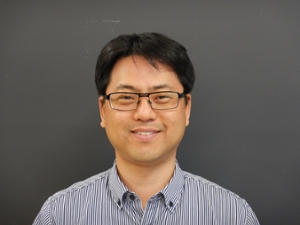
Won Jae Chang BSc, MSc, PhD, P.Eng.
Associate Professor Civil Geological and Environmental EngineeringOn Sabbatical leave July 1, 2025 - June 30, 2026
- Address
- Room 2B25 Engineering Building
- 57 Campus Drive
- Saskatoon, SK
- S7N 5A9
Research Area(s)
- Bioremediation
- Contaminated site assessment and remediation
- Freezing contaminated soils
- Hydrocarbon-degrading bacteria
- Microbial community characterization
- Petroleum hydrocarbons
Biography
Education
B.Sc. (Civil Eng, Hanyang University, South Korea, 2001)
M.Sc. (Civil Eng. (Geoenvironmental Eng.), University of Alberta, 2004)
Ph.D. (Civil Eng. (Environmental Eng.), McGill University, 2010)
Academic Positions
- August 2012 - present Assistant Professor, Dept. of Civil and Geological Engineering, University of Saskatchewan
- June 2010 - July 2012 Post-Doctoral Fellow, Dept. of Civil Engineering, McGill University
- May 2005-June 2010 Graduate Research Assistant, Dept. of Civil Engineering, McGill University
- Jan 2005- April 2005 Researcher (Geoenvironmental Eng.) Korea Institute of Construction Technology (KICT)
- Sept 2002-Dec. 2004 Graduate Research Assistant, Dept. of Civil and Environmental engineering, University of Alberta
Research Area
My research is in the areas of geoenvironmental and environmental engineering that are situated at the interface between environmental chemistry and biotechnology. My research programs focus on (1) fundamentally understanding physicochemical and biological processes in engineered and natural environmental systems impacted by organic and/or inorganic contaminants, and (2) developing cost-effective, environmentally sound remediation and reclamation technologies.
Current Research Program
- Bioremediation in Cold Climate
- Bioremediation at the limit: petroleum hydrocarbon biodegradation in freezing contaminated soils
- Development of field-scale extended bioremediation systems for hydrocarbon-contaminated soils under seasonal freeze-thaw condition
- New Remediation Technology for Environments Impacted by Natural Resource Development
- Remediation of soils and groundwater impacted by organic and inorganic contaminants from oil and gas production wastes
- Bio-active natural adsorbents/biofiltration for the removal of contaminants in oil-field processed water
- Functional gene-based, quantitative decision-making models for engineered bioremediation and natural attenuation

